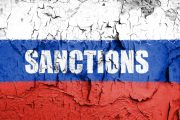On May 19, Swiss citizens will go to the polls to vote on a referendum that would decide whether or not to allow restrictions on the Alpine country’s gun policies.
It might seems odd to most readers that a country renowned for its relaxed gun laws would consider a tightening those laws.
What readers should know is that Switzerland didn’t just draw this decision out of thin air. No, the Swiss people will be deciding whether to adopt or to refuse the European Union’s revised Firearms Directive.
According to the European Union’s website explaining the mandates of the Firearms Directive, the following additional restrictions on the right to own firearms are imposed:
A ban of certain semi-automatic firearms: These include automatic firearms transformed into semi-automatic firearms, long semi-automatic firearms of length less than 60cm, long semi-automatic firearms with loading devices of more than 10 rounds, and short semi-automatic firearms with a loading device of more than 20 rounds.
Regulation of acoustic weapons: An acoustic or salute weapon is an active weapon transformed to only shoot blanks for use in theatre or cinema, e.g. Such weapons can be easily re-transformed into fully active firearms. In the future, acoustic and salute weapon can still be used in a theatre or in movies, subject to declaration, authorisation or licence depending on the category they belonged to before transformation.
Regulation of alarm and signal weapons: An alarm and signal weapon is a device with a cartridge holder which is designed to fire only blanks, irritants, other active substances or pyrotechnic signalling rounds and which is not capable of being converted to expel a shot, bullet or projectile by the action of a combustible propellant.
Inclusion of museums and collectors in the scope of the Directive. The existing Directive does not cover collectors. In the future, collectors and museums will be treated like any civilian firearms owner. They will have the possibility to acquire category A firearms but only under strict conditions.
Deactivated weapons are included in the scope of the Directive. Regulating the deactivated weapons is now subject to declaration to national authorities. Stricter rules for the deactivation of firearms were also adopted.
Stricter conditions for the online acquisition of firearms to better control the acquisition of firearms via Internet, pieces thereof or ammunition through the Internet.
Clearer rules on marking of firearms to improve traceability: Member States need to ensure that any firearm or part placed on the market has been marked and registered in national computerised data-filing systems.
Conditions for medical tests: In future, all Member States will have to put in place a system of medical checks for the authorisation to acquire firearms. Member States will define the details concerning medical checks.
Additionally, the original directive requires that all EU countries “deactivate firearms in their territory provided they have taken all necessary measures to apply the common deactivation standards and techniques provided for by this Regulation.”
Basically, to ban or not to ban, that is the question the Swiss will be deciding.
Is it worth surrendering their self-defense — and a substantial part of their sovereignty — to the European Union?
Why would the Swiss even entertain such a shrinking of their natural right to defend themselves? English-language Swiss media explains the seemingly inexplicable:
The referendum on the issue is being held because the Swiss Shooting Interest Group, supported by the conservative Swiss People’s Party (SVP) launched a popular initiative calling for Swiss voters to reject the EU Firearms Directive.
The committee behind the initiative collected the necessary number of signatures to trigger a referendum under Switzerland’s unique system of direct democracy.
In other words, gun owners in Switzerland worried that without an explicit rejection of the EU’s Firearm Directive, provisions of that “law” might slowly find their way incorporated into Switzerland’s domestic legislation.
The Swiss Shooting Interest Group is so concerned about the creep of gun restrictions into their country that the information they’ve published to explain their opposition calls the EU’s Firearm Directive “an “EU disarmament diktat,” describing it as a direct attack on the right of the people to keep and bear arms.
Of particular concern to Swiss gun owners — estimated to number over 2,300,000 — is Article 17 of the EU Firearms Directive, which reads:
By 14 September 2020, and every 5 years thereafter, the Commission shall submit to the European Parliament and to the Council a report on the application of this Directive, including a fitness check of its provisions, accompanied, if appropriate, by legislative proposals concerning, in particular, the categories of firearms in Annex I and issues related to the implementation of the system for the European firearms pass, to marking and the impacts of new technologies such as 3D printing, the use of QR code and the use of radio-frequency identification (RFID).
No wonder they are worried!
Look at all that one provision would require: Every 5 years each signatory country would have to prove to the European Parliament that it is implementing the prohibitions established by this regulation.
Also, the countries would have to demonstrate that they are cracking down on 3D printing of weapons and ammunition and that they are using RFID tags in order to enable tracking of guns and ammunition from factory to end user.
According to Swiss media, the government of Switzerland warns that should the referendum to reject the new gun restrictions pass, the country could experience severe economic repercussions:
The government says this could cost the Swiss economy billions of francs a year while the Swiss Federal Office of Police warns that Switzerland would be deprived of key security and crime information accessible via the Schengen Information System.
Losing Schengen status would also have a knock-on effect on immigration because, as a non-Schengen country, Switzerland would cease to be covered by the so-called Dublin Regulation. Under the Dublin rules, asylum seekers can only apply to one EU member state for protection.
If Switzerland were no longer covered by these rules, there could be a spike in asylum requests because failed asylum seekers from other EU countries would then be able to apply to Switzerland as a next port of call.
In other words, protect gun rights and be flooded by asylum-seeking immigrants or accept the new firearm restrictions and enjoy protection against the wave of immigrants washing across the rest of Europe.
Sadly, this dilemma seems to have convinced Swiss voters to exchange gun rights for economic and border security. As Swiss press reports:
Close to two thirds of voters (65 percent) say they are “definitely in favour” or “generally in favour” of Switzerland’s adoption of tougher gun laws, according to a survey run by Gfs Bern at the end of April. That is just one percentage point lower than an earlier poll carried out at the end of March.
Sunday, May 19 will be an historic day in Switzerland. Let’s hope that the voters have a last-minute change of heart and decide not to offer their right to own weapons on the altar of European integration.
Image: Damien VERRIER via iStock / Getty Images Plus




